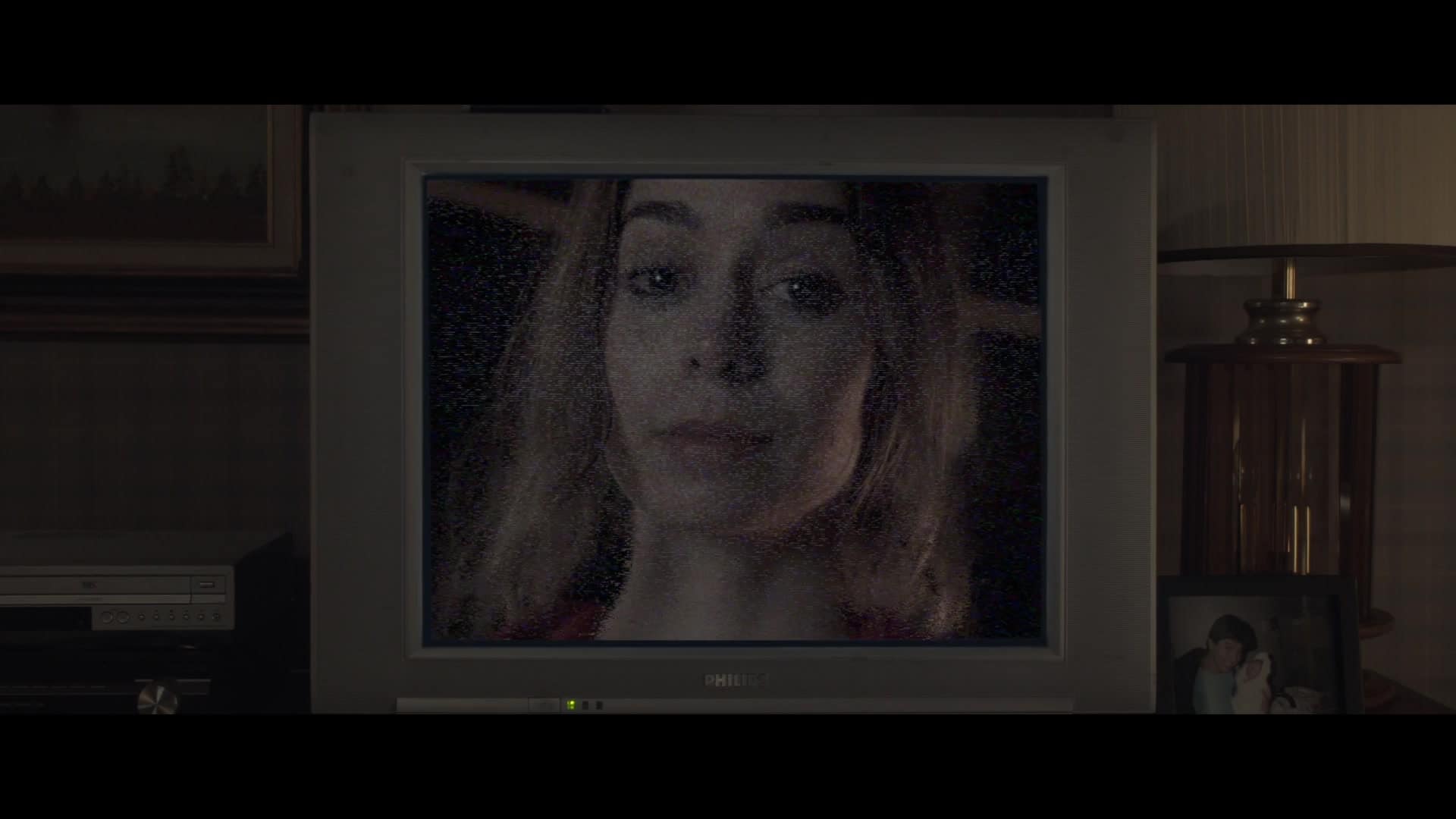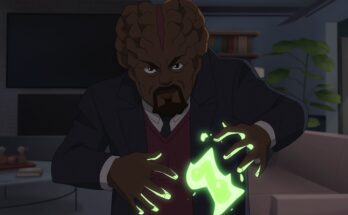Want to hear more from the actors and creators of your favorite shows and films? Subscribe to The Cinema Spot on YouTube for all of our upcoming interviews!
Managing editor & film and television critic with a Bachelor's of Arts in English Literature with a Writing Minor from the University of Guam. Currently in graduate school completing a Master's in English Literature.
Nutting, Bakopoulos, Somerville, and Lee’s HBO Max dark comedy series Made for Love continues its three-part premiere with its third episode. “Love is Strange” is written by Alissa Nutting and Sarah Solemani and is directed by Alethea Jones. The article you will read ahead of you contains spoilers. Therefore, please be cautious if you have not seen or caught up with the series.

Plot Summary
A good first half of the episode takes place in the past. It focuses on the premises in which Hazel Green-Gogol (Cristin Milioti) is confined. Keegan James (Nyasha Hatendi), a reporter for Weeknight America, interviews her and her then-husband Byron Gogol (Billy Magnussen) about each other and the invention of Made for Love. The news reporter also takes a look at Gogol’s household residence and former campus facility, The Hub.
In the present, Hazel is met by her husband but is allowed to go on a walk, where strange things happen to the human senses.
Discussion
From the start, Hazel has always been cynical about Gogol’s vision for Made for Love. More so, this cynicism turns into absolute skepticism when she begins to experience the effects of the brain implant, such as invasion of privacy. When James asks her what words she would use to describe her husband, she cannot seem to come up with strong adjectives. Furthermore, when asked if she’ll miss interacting with the outside world by living in Gogol’s “Home Cube,” Hazel tries to provide a definite answer.
Made for Love‘s third episode possesses a heavy theme on “bullshit.” I will provide some examples with evidence. In one scene, Gogol’s Chief Science Officer, Dr. Fiffany Hodeck (Noma Dumezweni), tells James about the implant being put into the brain of a dolphin named Zelda. When he asks her about animal rights breaches, she denies seeing Gogol’s mammal as a “test subject.” However, she then talks about using the animal to monitor data and its reactions via the chip implant.
When further discussing Made for Love, Gogol insists it will work and will help prevent marriages from ending in divorce. James asks Hazel if she would have the chip implanted in her brain. She avoids this by stating that she is “already so synced” with her then-husband. Obviously, the reporter shows to not believe this claim. Byron tries to justify that transparency will lead to acceptance, without sufficient evidence.
Definition of Bullshit
In The Death Algorithm and Other Digital Dilemmas, Roberto Simanowski defines the term “bullshit” as deception “with empty talk […] without substance and, as feces, free of any nutritional value.” The essences of the truth coming out of Hazel’s, Gogol’s, and Hodeck’s mouths are not there. None of the three are properly answering James’s questions. For example, he asks Hazel if she would ever miss “a moment of nostalgia for the real world and all its mess.” By claiming she would be like to live in The Hub until she dies, this is actually bullshit.
Additionally, we can see The Hub — specifically the Home Cube — as a metonymy for technology. Simanowski’s text calls upon French anthropologist Marc Augé’s non-place: “Every form of technology is an inhabitable place with its own special culture.” The Home Cube can hold advanced technology that the outside world doesn’t seem to have. In previous episodes, Hazel is told to rate her orgasms and could watch the news from a special television screen. To compare, her father’s town has a mechanical bull and a sex doll. Of course, there is a lot more to juxtapose, and we’re barely one-third of the way into the season.
Final Thoughts
This third episode of Made for Love can get quite dark without all the melodrama. We see Hazel attempting suicide in Gogol’s pool before Zelda shows her a way to escape The Hub through the waters. It can only be surmised that perhaps the dolphin is also in peril. Gogol’s hubris and toxicity are manifest on the surface. He tries to convince Hazel, “You don’t know what you want because you don’t know how you feel about anything. I’m actually helping you.” The man tells her he loves her “objectively,” which, when looking at the semantics of the word, is a rather strange thing to say.
Hazel having the Made for Love implant in her brain reminds me of Dave Eggers’s The Circle. (In his novel, a social media enterprise allows users to keep close tabs on each other. The public can see every spoken word and action taken, which is bonkers if you ask me.) Hazel used the invasion-of-privacy device to prompt bartender Liver (Augusto Aguilera) in masturbating, which Gogol is also forced to watch.
Aside from this, another peculiar scene in “Love is Strange” is when the tech founder/CEO introduces James to “flavor balls.” The reporter likens Gogol to Willy Wonka, a reference the billionaire does not understand. Overall, this episode is well worth the watch.
What are your thoughts on this series? Do you like the story so far? Let us know! For more HBO Max, comedy, and science-fiction-related news and reviews, follow The Cinema Spot on Twitter (@TheCinemaSpot) and Instagram (@thecinemaspot_). Also, you can now find us on Facebook (TheCinemaSpotFB)!
Managing editor & film and television critic with a Bachelor's of Arts in English Literature with a Writing Minor from the University of Guam. Currently in graduate school completing a Master's in English Literature.




